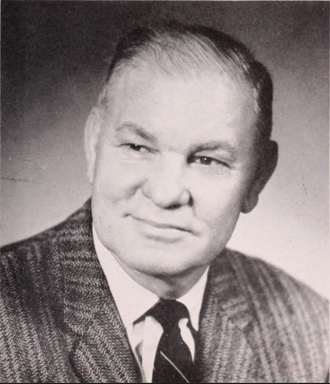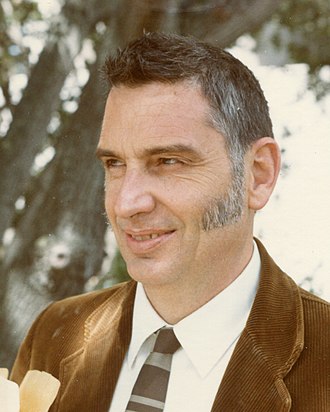Vaught Last Name Origin, History, and Meaning
Where did the surname Vaught come from? What does the surname Vaught mean? Discover the history and meaning of the last name Vaught and family migration on YourRoots Map.
Surname Vaught Origin: What does the last name Vaught mean?
The surname Vaught has its origins in Germany, first appearing in records around the early 17th century. The name remained closely associated with Germany in the 17th century and then started to spread significantly in the United States from the 18th century onwards. By the 20th century, the volume of records with the Vaught surname grew notably in the United States, where it remains prominent today.
YourRoots data confirms the German roots of the Vaught surname, with a significant presence in the United States by the 20th century. The surname's history reflects its expansion and establishment in various regions, highlighting its evolution and prominence in the modern era.
Vaught Last Name History: Where did the last name Vaught come from?
Origin of Vaught Surname: Where does the last name Vaught originate from?
According to YourRoots data, the surname Vaught first appeared in records from Germany around the early 17th century. Please note that this reflects only YourRoots data for the exact Vaught spelling and does not include other record sources or surname variations.
History of the Last Name Vaught: What does the Vaught surname history look like in the early days?
The Vaught surname remained closely associated with Germany in the 17th century and then started growing significantly in the United States from the 18th century onwards.
Global Spread: Where can we find the Vaught surname today?
By the 20th century, the volume of records with the Vaught surname grew significantly in the United States. The Vaught surname remains prominent in the United States.
Explore Vaught last name heritage and Vaught surname origin based on YourRoots Map data
 VIEW THE ORIGIN OF SURNAME VAUGHT
VIEW THE ORIGIN OF SURNAME VAUGHTFamous People With Vaught Surame?

Loy Vaught
Loy Stephen Vaught (born Feb 27, 1968) is a former American professional basketball player known for his time with the Los Angeles Clippers in the NBA.
Vaught played a pivotal role in leading the University of Michigan Wolverines to the 1989 NCAA Men's Division I Basketball Championship before being drafted by the Clippers in 1990.
During his prime, Vaught was a consistent forward, known for his scoring and rebounding abilities. He had standout performances, including a career-best 33 points in a single game.
Injuries later hampered his career, but Vaught continued to play for various teams before retiring. He is remembered for his outstanding rebounding skills and defensive prowess on the court.

James B. Vaught
James Benjamin Vaught (November 3, 1926 – September 20, 2013) was a United States Army Lieutenant General known for his service in the Korean War, the Vietnam War, and his role as the overall commander of Operation Eagle Claw. Vaught's military career included commanding roles in South Korea and South Vietnam, where he played a crucial part in various operations. He was also a proponent of the Vietnamization policy. Throughout his career, Vaught received numerous awards, including the Silver Star and the Purple Heart. After retiring, he resided in Myrtle Beach, South Carolina. Vaught's legacy includes his leadership during Operation Eagle Claw and his dedication to military service.

Johnny Vaught
John Howard Vaught (May 6, 1909 – February 3, 2006) was an American college football legend who made history as the head coach at the University of Mississippi (Ole Miss). Known for leading the Rebels to multiple Southeastern Conference titles, he is the only coach in Ole Miss history to win an SEC football championship. Vaught's impressive coaching record includes 18 bowl games and 10 victories, as well as an undefeated season in 1962. Inducted into the College Football Hall of Fame in 1979, Vaught's legacy lives on at Ole Miss, where his name was added to Hemingway Stadium in 1982. He passed away in 2006 at the age of 96.

Robert Lawson Vaught
Robert Lawson Vaught (April 4, 1926 – April 2, 2002) was a mathematical logician known for his foundational work in model theory. Starting as a musical prodigy, Vaught transitioned to academia, earning his Ph.D. in mathematics from Berkeley. He made significant contributions to the field, including the Tarski–Vaught test and the Vaught conjecture on countable models of first-order theories. His "Never 2" theorem and the Vaught transform are also well-regarded in the mathematical community. Vaught's legacy continues to influence modern mathematical logic, particularly in the study of elementary submodels and saturated structures.

DeAnn Vaught
DeAnn Kay Vaught (born 1970) is a farmer from Horatio, Arkansas, and a Republican member of the Arkansas House of Representatives for District 87. She graduated from Southern Arkansas University and is affiliated with the Farm Bureau Federation. Vaught and her husband, Jon, live in Horatio with their three children and are active members of the Baptist community. In 2014, she defeated Democrat Fonda Hawthorne, securing her seat in the House. Vaught serves on various committees, including Rules, Aging, Children and Youth Legislative, Military Affairs, Revenue and Taxation, and Legislative Joint Auditory Commerce.
All images displayed on this page are sourced from Wikipedia or Wikimedia Commons.We use these images under their respective Creative Commons or public domain licenses. Wherever applicable, author attributions and license information are provided. If you believe an image is used incorrectly or outside its license terms, please contact us so that we can review and correct the issue.




.png)